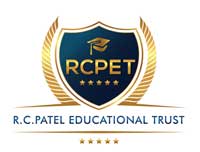Purpose of collection
The principal function of the Chemistry Library is to support the research and teaching needs of the Department of Chemistry.
This includes the provision of advanced texts and a wide range of periodicals in support of research activity and the key texts required by the F.Y.B.Sc., S.Y. B.Sc., T.Y.B.Sc. , M.Sc.-I and M.Sc.-II chemistry courses.
The core collection of books and journals covers the fields of inorganic, organic, physical and theoretical chemistry, which, at the research level overlap with physics, materials science, biochemistry, biology and medicine.
The Library serves students reading chemistry at all levels of the Natural Sciences Tripos, access being granted according to the rules.
Categories of material
The Library collects the following categories of material :
Borrowable - Core Stock
This includes undergraduate texts, research monographs and conference proceedings.
Non-Borrowable - General Reference Stock
This includes dictionaries, data books, handbooks, safety manuals and final examination papers.
Reference Works
The Library maintains a reference section, containing mainly dictionaries, encyclopaedia, data books, safety manuals and handbooks of relevance to chemistry and related subjects. The Library aims to maintain reasonably up-to-date editions of these reference works within the constraints of its budget. Many reference works are available in electronic format.
Electronic media
Electronic journals
The trend to electronic resource provision has gathered pace and some publishers' pricing models have shifted in emphasis from print to electronic format. New titles are sometimes appearing in electronic format only. Although journal back files are increasingly being digitized full-text access to these represents a very large cost and in the medium term the printed journal archive in the library remains of great importance.
Electronic books
Chemistry Library supports the electronic books scheme. Originally introduced to acquire texts for undergraduates this service is developing to meet research needs as well. Chemistry Library monitors developments in this area and makes recommendations for purchase.
Books
| SR. NO. | BOOK CODE | TITLE | AUTHOR |
|---|---|---|---|
| 1 | C-1 | Modern methods of Organic Synthesis | William Carruthers |
| 2 | C-2 | Advanced Organic chemistry | Jerry March |
| 3 | C-3 | Organic chemistry | Morrison & Boyd |
| 4 | C-4 | Principles of Inorganic chemistry | Puri, Sharma & Kalia |
| 5 | C-5 | FYBSc Practical chemistry | Nirali Prakashan |
| 6 | C-6 | SYBSc Practical chemistry | Nirali Prakashan |
| 7 | C-7 | TYBSc Practical chemistry | Nirali Prakashan |
| 8 | C-8 | Organic Reaction Mechanism | V. K. Ahluwalia |
| 9 | C-9 | Stereochemistry of Organic compounds | P. S. Kalsi |
| 10 | C-10 | Organic reactions & their mechanism | P. S. Kalsi |
| 11 | C-11 | Practicals in Physical chemistry | Gurdeep raj |
| 12 | C-12 | Heterocyclic chemistry | Paquett |
| 13 | C-13 | Organic reaction mechanism | Sanihal |
| 14 | C-14 | Organic chemistry | Bahl & Bahl |
| 15 | C-15 | Textbook of FYBSc chemistry | Dr. H. A. Mahajan |
| 16 | C-16 | Textbook of SYBSc chemistry | Dr. A. P. Rajput |
| 17 | C-17 | Physical & Inorganic chemistry (FYBSc) | Dr. C. M. Bhavsar |
| 18 | C-18 | Physical chemistry | Dr. S. Pahari |
| 19 | C-19 | Advanced general chemistry | Sachin Kumar Ghosh |
| 20 | C-20 | General & Inorganic chemistry | R. Sarkar |
| 21 | C-21 | Practical Chemistry | O. P. Pandey |
| 22 | C-22 | Introduction to Environmental science | Y. Anjaneyulu |
| 23 | C-23 | TYBSc Polymer chemistry | Prof. M. T. Chaudhari |
| 24 | C-24 | Advanced Physical chemistry | Gurdeep raj |
| 25 | C-25 | CSIR-UGC NET study material | P. S. Kalsi |
| 26 | C-26 | NET-SET study material | Arihant Publications |
| 27 | C-27 | NET-SET study material | Upkar Publications |
| 28 | C-28 | NET-SET-GATE study material | Upkar Publications |
| 29 | C-29 | Organometallic synthesis | E. S. Gould |
| 30 | C-30 | Organic chemistry | S. H. Pine |
| 31 | C-31 | Organic synthesis | Shaun & Black |
| 32 | C-32 | Organometallic chemistry Part-A | Ajay sharma |
| 33 | C-33 | Organometallic chemistry Part-B | Ajay sharma |
| 34 | C-34 | Inorganic chemistry | Meissler & Tarr |
| 35 | C-35 | Spectroscopic Technique | Silverstein |
